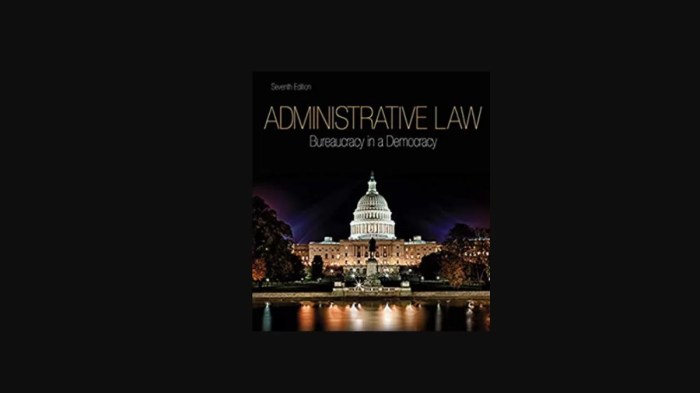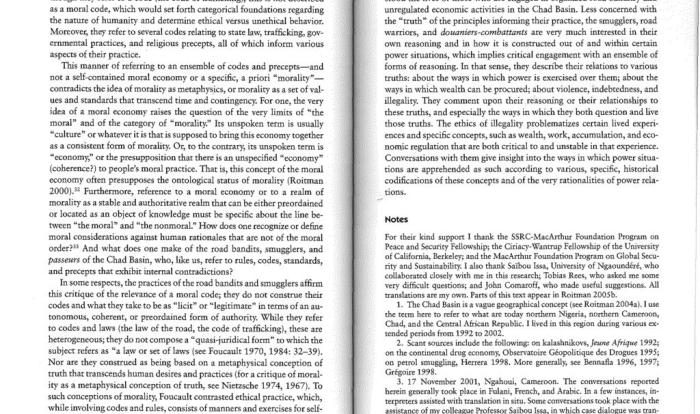Administrative law bureaucracy in a democracy 7th edition – The seventh edition of “Administrative Law Bureaucracy in a Democracy” embarks on an intellectual journey, delving into the intricate workings of bureaucracy within democratic systems. This seminal work unravels the concept of administrative law, its significance in democratic governance, and the defining characteristics of bureaucracy, characterized by its hierarchical structure, specialization, and rule-based decision-making.
Bureaucracy plays a pivotal role in the efficient implementation of laws and policies, ensuring the smooth functioning of democratic societies. Mechanisms for public accountability ensure that bureaucracies remain responsive to the needs of citizens. The text provides compelling examples of how bureaucracies have positively contributed to democratic societies.
1. Introduction: Administrative Law Bureaucracy In A Democracy 7th Edition

Administrative law bureaucracy is a system of government in which administrative agencies are responsible for implementing and enforcing laws and policies. Administrative agencies are created by the legislature and are given the authority to make rules and regulations that have the force of law.
Administrative law bureaucracy plays a vital role in a democracy by ensuring that laws and policies are implemented in a fair and efficient manner. Bureaucracies also provide a way for the public to participate in the decision-making process and to hold government accountable.
2. The Role of Bureaucracy in a Democracy
Bureaucracies contribute to the efficient and effective implementation of laws and policies by providing expertise and resources that would not be available to the legislature or the courts. Bureaucracies also provide a way for the government to respond quickly to changing circumstances.
Bureaucracies can be held accountable to the public through a variety of mechanisms, including legislative oversight, judicial review, and public participation. Legislative oversight involves the legislature reviewing the activities of bureaucracies and making sure that they are operating in accordance with the law.
Judicial review involves the courts reviewing the decisions of bureaucracies and making sure that they are not arbitrary or capricious. Public participation involves the public having the opportunity to comment on proposed rules and regulations and to participate in the decision-making process.
3. Challenges to Bureaucracy in a Democracy, Administrative law bureaucracy in a democracy 7th edition
Bureaucracies can face a number of challenges in a democracy, including excessive red tape, lack of transparency, and political interference. Excessive red tape can make it difficult for the public to access government services and can lead to delays in the implementation of laws and policies.
Lack of transparency can make it difficult for the public to understand how bureaucracies are operating and can lead to a lack of trust in government. Political interference can lead to bureaucracies making decisions that are based on political considerations rather than on the law.
4. Reforms to Improve Bureaucracy
A number of reforms have been proposed to improve the functioning of bureaucracies in a democracy. These reforms include increasing transparency, reducing red tape, and increasing public participation. Increasing transparency involves making more information about the activities of bureaucracies available to the public.
Reducing red tape involves simplifying the procedures that the public must follow in order to access government services. Increasing public participation involves giving the public more opportunities to comment on proposed rules and regulations and to participate in the decision-making process.
5. The Future of Bureaucracy in a Democracy
The future of bureaucracy in a democracy is uncertain. Some argue that bureaucracies will become increasingly important as the government becomes more complex and the challenges facing society become more complex. Others argue that bureaucracies will become less important as technology makes it possible for the public to access government services directly.
Regardless of the future of bureaucracy, it is clear that bureaucracies will continue to play a vital role in a democracy. Bureaucracies provide expertise and resources that are essential for the efficient and effective implementation of laws and policies. Bureaucracies also provide a way for the public to participate in the decision-making process and to hold government accountable.
Popular Questions
What is the primary function of administrative law bureaucracy in a democracy?
Administrative law bureaucracy serves as the backbone for the efficient implementation of laws and policies, ensuring the smooth operation of democratic societies.
How are bureaucracies held accountable to the public?
Mechanisms for public accountability, such as legislative oversight, judicial review, and citizen participation, ensure that bureaucracies remain responsive to the needs of citizens.
What are some of the potential challenges faced by bureaucracies in a democracy?
Bureaucracies may encounter challenges such as excessive red tape, lack of transparency, and political interference, which can undermine their legitimacy and effectiveness.


